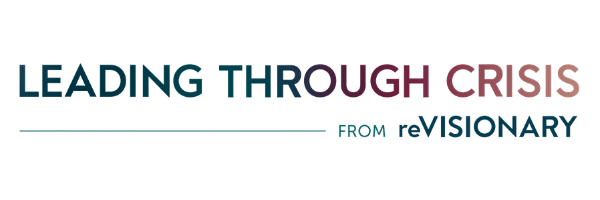Navigating Personal Crisis
Listen to this episode on Apple Podcasts or Spotify
Once upon a time, I used to introduce myself in entrepreneur groups by saying something along the lines of “I help leaders transform their teams by designing cultures that work” which then morphed into the slightly more nebulous statement of “I’m in the business of transformation.” I fully recognize those aren’t particularly great introductions (and, for the record, I neither use them anymore, nor spend much time in those types of groups these days), but the interesting thing I realized a few years ago was that the theme of transformation was clearly something I was emphasizing.
Looking back, and thinking about the work I do now, I fully believe that’s because the idea of transformation sounds so exciting! There’s a real positive spin when you use the word transformation, as opposed to, say, the word change. Transformation brings to mind caterpillars turning into butterflies, people becoming more aware of themselves/the world/spirit/whatever they might benefit from, and a positive outcome for all involved in the transformation! There’s an elegance and a mystery when you use the word transformation, and people are intrigued by that.
Change, on the other hand, sounds clunky, and challenging – perhaps, one might say, archaic and slow. It brings to mind people resisting and fighting against whatever is coming, the awkward years that come with puberty or other life stages, and a painful process regardless of what the outcome might be.
No wonder I was so focused on the language of transformation!
There’s a level of creativity involved when we talk about transformation too, a special sauce that comes from combining the known with the inspiration that comes when you’re creating in the moment. And while I’m not sure that’s always the easiest thing to sell or explain, I know it sounds incredibly exciting.
Like many people, I get caught up in the idea and potential of transformation all the time. I’ve worked in organizations that went through “transformations,” ones that often involved outside consultants. And the truth is, as excited as I was each time the idea of transformation came up, I was more often disappointed by the process and the result – as it was really just a fancy term for mediocre, at best, change management, and was never fit for purpose or customized in the ways that matter most. In the end, it was invariably not what I, or the people I worked with, hoped would be the result.
Those experiences are the main reason I stopped using the word transformation when I talk about what I do. I never wanted to be lumped in with the people, groups, or consultants who “sell” transformation and deliver an overpriced, off the shelf, frustrating and disappointing experience that invariably takes more time and effort than is necessary.
But the truth is, transformation (the good kind) is a large part of what I do. It’s not the only part, but it’s definitely in the mix. And the conversation I had with Jim Sellner, my guest on the podcast this week, was a big part of helping me realize transformation isn’t a dirty word, by any means, and that I can shift the narrative on how and when I use it.
Jim’s perspective on transformation and crisis is absolutely fascinating and enlightening, and his openness and willingness to share his personal story and experiences make this a must-listen episode.
So next time you hear the word transformation, don't shy away. Embrace it for the potential it holds. Remember, it’s not just about change; it’s about evolving into something better, more aware, and more impactful. As leaders, it's our job to harness the true power of transformation, making it more than just a buzzword but a reality that drives genuine progress.
If you’re curious and want to dive deeper, don’t miss this conversation with Jim Sellner. His insights will truly reshape how you view and approach transformation. Trust me, it’s a game-changer!
—
Dr. Jim’s core purpose is to bring out the genius in you. With over 40 years of experience working with and training countless business leaders and entrepreneurs, his no-nonsense approach and ability to keep things simple inspire changes in behaviors that yield significantly better results.
As EVP, People Analytics & Talent Activation at Vivo Team, Dr. Jim’s team holds multiple gold awards from the internationally renowned Brandon Hall Group.
A respected leader, author, and speaker known for his innovation in people analytics in L&D, he has published many articles and eBooks including “Leadership for Einsteins: How Smart Leaders Bring Out the Genius in People” and “Account-Ability: The Science of Human Performance.”
Having first trained and worked as a city planner, Jim later joined the faculty at the University of British Columbia where he went on to obtain an MA and Ph.D. in psychology. His unique psychological/behavioral perspective provides Vivo Team with a solid, practical philosophy.
You can connect with Jim on LinkedIn (/drjimsellnerphddipc).
